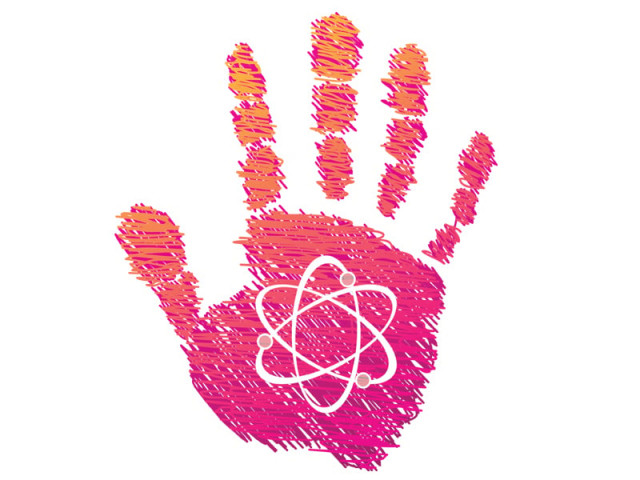Palmistry: Life and character in the hand
Tawakkul Hussain’s rational approach to the occult.

Notice the culturally ad hoc traits attributed to practicing occultists, psychics, clairvoyants and palmists: the penetrating gaze, heavy make-up (the eyes are a must), a sibilant, mesmerising cadence — not to mention the oracular aura of uber-mysteriousness around the fortune-teller.
The Delphic Oracle, mouthpiece of Apollo — once engaged a psychosomatic experience of altering consciousness and complex predictions (or visions) — became a punching bag for normative thought. The Pythia of Delphi took on the likeness of her depressing counterpart today: the formidable Madame Olga, usually portrayed as a turbaned and mostly overweight gypsy woman with a mole and a litany of prophecies. Additionally, endless witch hunts and campy portrayals — courtesy pop culture — have made things worse.
Tawakkul Hussain only grins and scoffs at the theatricality associated with specialists from his field these days. The palmist, astrologer and consultant of 16 years (practising) postulates that there is a specific science behind it all — derived from algorithms in the hands; computations, commonalities and discrepancies that render palmistry more mathematical than theological.
“This is the main difference between palmistry and astrology: Astrology is largely faith-based while palmistry requires one to be more physically aware, more practical,” says Hussain, sitting on his desk chair in an office above Old Books in F-7, Islamabad. It makes sense because in astrology one actually needs to ‘believe’ in the major astrological caveat: faith in planetary alignments and their capacity to affect, determine or mould personality traits and life’s outcomes. Meanwhile, Hussain explains, “In palmistry, it’s not just the collection of lines differing from hand to hand that I look at. I treat it like a map, I look at the whole thing first. The type of skin on the hands, the physical structure, these are all very important.”
However, he adds that faith plays a part in palmistry as one relies on intuition and adheres to prefixed formulae that have been determined by the art’s collective history and scholarship. The practice reportedly dates back to Greece (384-322 BC), although the origins remain debatable. But Hussain warns against excessive faith; he’s out to prove that what he does can count as feasible science.
Critics would argue against Hussain’s proposed empiricism, easily writing him off as a man of pseudo-science and positing that nothing in palmistry nor astrology suffices the questions raised by the scientific method; accusing them of ‘cold reading’— a term Hussain knows all too well.
In a cold reading, the palmist or psychic in question merely ‘appears’ to be psychic. “Hence, many practice the art of hypnosis to put people in a state of awe or fear,” he says.
No stranger to TV astrology segments (he’s notched over a thousand hours on ATV, PTV, ARY News combined), Hussain bears witness to thoughtless and uncharted psychic evaluations, readings and advice, lacking all the precision and analysis required of a cogent evaluator.
In the spirit of literary theory, Hussain refers to what he does as “interpretation and analysis, mixed with emotional understanding”. He falsifies notions of magic and the rich, nuanced myths of the occult world: “People who are psychic; there’s nothing magical or especially divine about what they can do.” He asserts simply that the ‘gift’ is contingent on specific conditions: genes, a combination of bodily reactions, developed intuition and an emotional component. It may be circumstantial or a mysterious turn of genetics and therefore victim to probability theory, but Hussain seeks to make it all plausible; “It would be my life’s work if I got there,” he says.
Published in The Express Tribune, September 9th, 2011.



















COMMENTS
Comments are moderated and generally will be posted if they are on-topic and not abusive.
For more information, please see our Comments FAQ